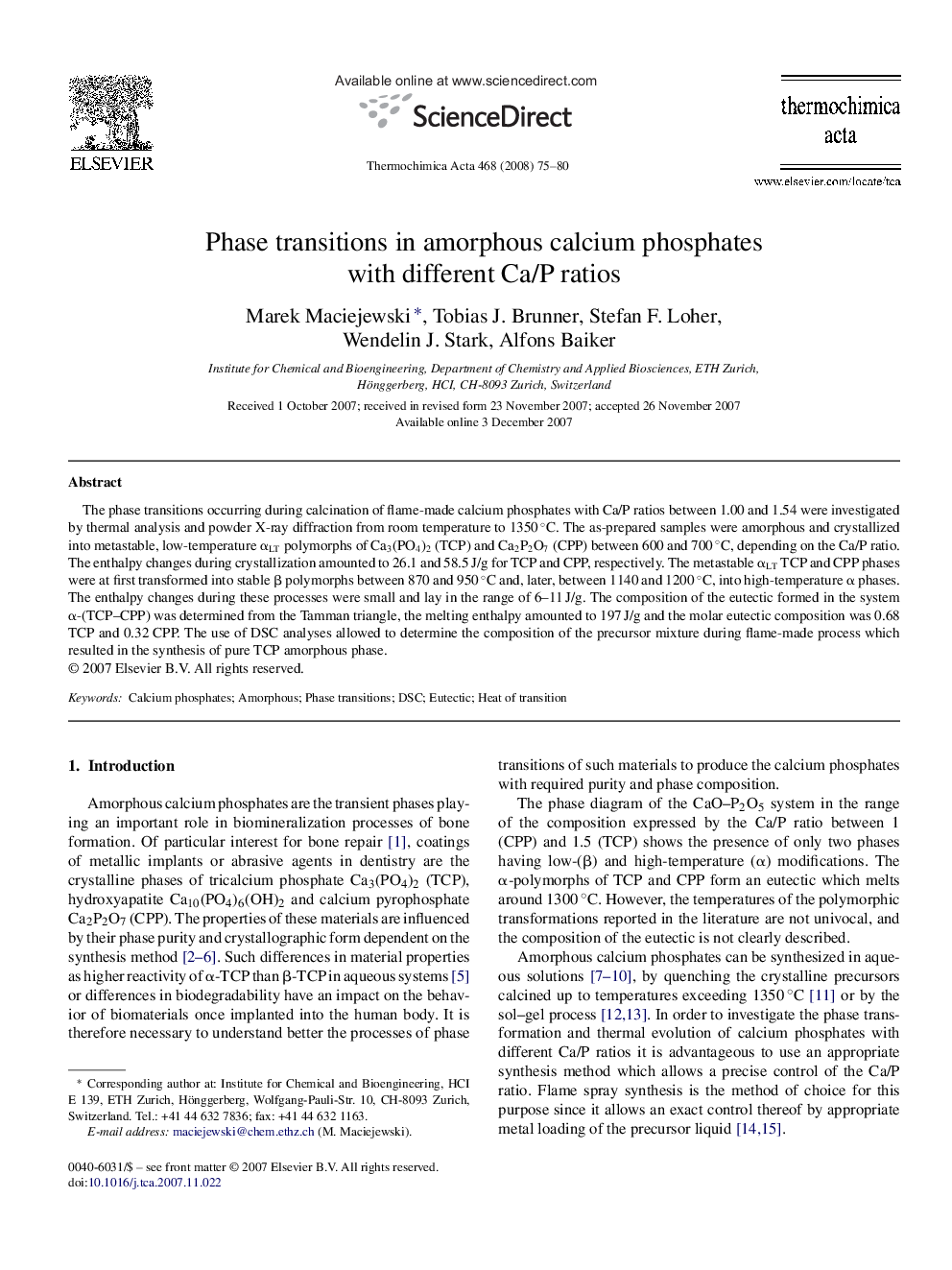| Article ID | Journal | Published Year | Pages | File Type |
|---|---|---|---|---|
| 675346 | Thermochimica Acta | 2008 | 6 Pages |
The phase transitions occurring during calcination of flame-made calcium phosphates with Ca/P ratios between 1.00 and 1.54 were investigated by thermal analysis and powder X-ray diffraction from room temperature to 1350 °C. The as-prepared samples were amorphous and crystallized into metastable, low-temperature αLT polymorphs of Ca3(PO4)2 (TCP) and Ca2P2O7 (CPP) between 600 and 700 °C, depending on the Ca/P ratio. The enthalpy changes during crystallization amounted to 26.1 and 58.5 J/g for TCP and CPP, respectively. The metastable αLT TCP and CPP phases were at first transformed into stable β polymorphs between 870 and 950 °C and, later, between 1140 and 1200 °C, into high-temperature α phases. The enthalpy changes during these processes were small and lay in the range of 6–11 J/g. The composition of the eutectic formed in the system α-(TCP–CPP) was determined from the Tamman triangle, the melting enthalpy amounted to 197 J/g and the molar eutectic composition was 0.68 TCP and 0.32 CPP. The use of DSC analyses allowed to determine the composition of the precursor mixture during flame-made process which resulted in the synthesis of pure TCP amorphous phase.
